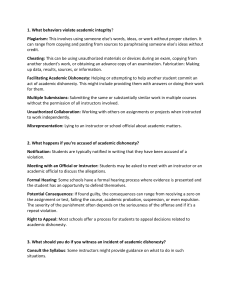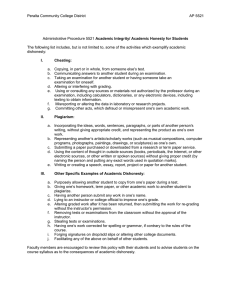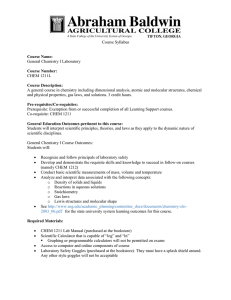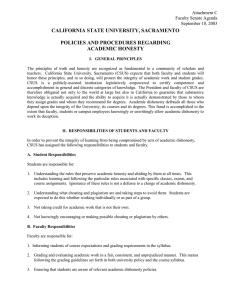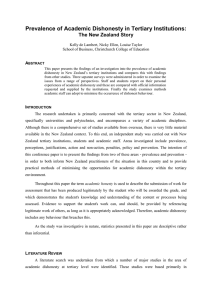CALIFORNIA STATE UNIVERSITY, SACRAMENTO POLICIES AND PROCEDURES REGARDING ACADEMIC HONESTY
advertisement
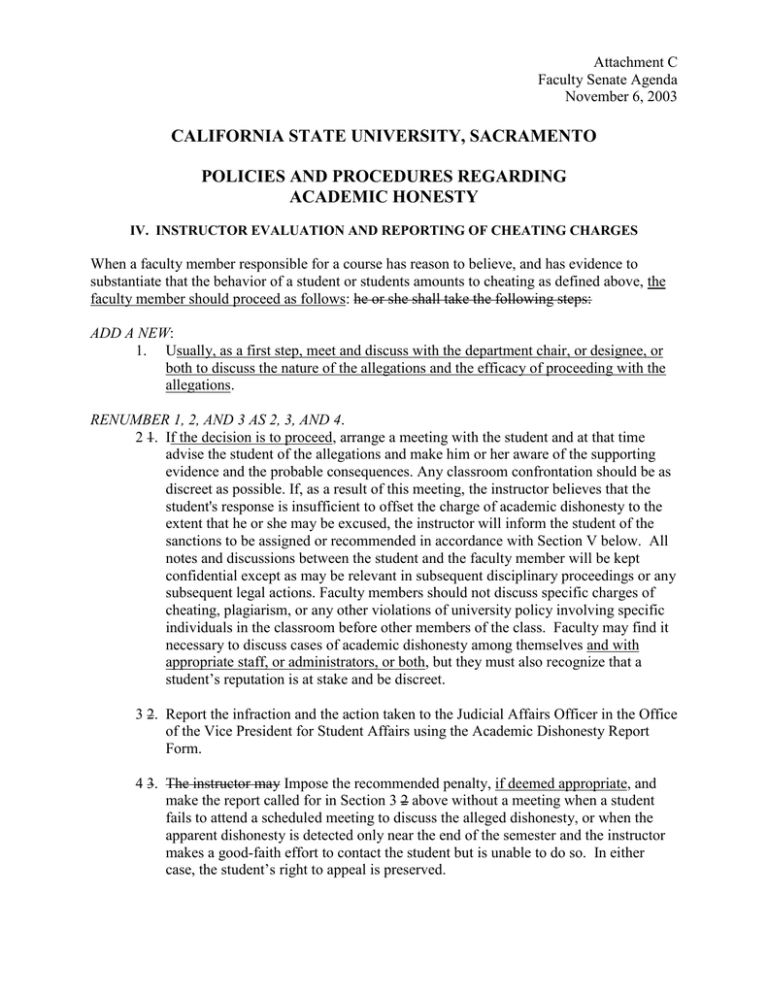
Attachment C Faculty Senate Agenda November 6, 2003 CALIFORNIA STATE UNIVERSITY, SACRAMENTO POLICIES AND PROCEDURES REGARDING ACADEMIC HONESTY IV. INSTRUCTOR EVALUATION AND REPORTING OF CHEATING CHARGES When a faculty member responsible for a course has reason to believe, and has evidence to substantiate that the behavior of a student or students amounts to cheating as defined above, the faculty member should proceed as follows: he or she shall take the following steps: ADD A NEW: 1. Usually, as a first step, meet and discuss with the department chair, or designee, or both to discuss the nature of the allegations and the efficacy of proceeding with the allegations. RENUMBER 1, 2, AND 3 AS 2, 3, AND 4. 2 1. If the decision is to proceed, arrange a meeting with the student and at that time advise the student of the allegations and make him or her aware of the supporting evidence and the probable consequences. Any classroom confrontation should be as discreet as possible. If, as a result of this meeting, the instructor believes that the student's response is insufficient to offset the charge of academic dishonesty to the extent that he or she may be excused, the instructor will inform the student of the sanctions to be assigned or recommended in accordance with Section V below. All notes and discussions between the student and the faculty member will be kept confidential except as may be relevant in subsequent disciplinary proceedings or any subsequent legal actions. Faculty members should not discuss specific charges of cheating, plagiarism, or any other violations of university policy involving specific individuals in the classroom before other members of the class. Faculty may find it necessary to discuss cases of academic dishonesty among themselves and with appropriate staff, or administrators, or both, but they must also recognize that a student’s reputation is at stake and be discreet. 3 2. Report the infraction and the action taken to the Judicial Affairs Officer in the Office of the Vice President for Student Affairs using the Academic Dishonesty Report Form. 4 3. The instructor may Impose the recommended penalty, if deemed appropriate, and make the report called for in Section 3 2 above without a meeting when a student fails to attend a scheduled meeting to discuss the alleged dishonesty, or when the apparent dishonesty is detected only near the end of the semester and the instructor makes a good-faith effort to contact the student but is unable to do so. In either case, the student’s right to appeal is preserved.
